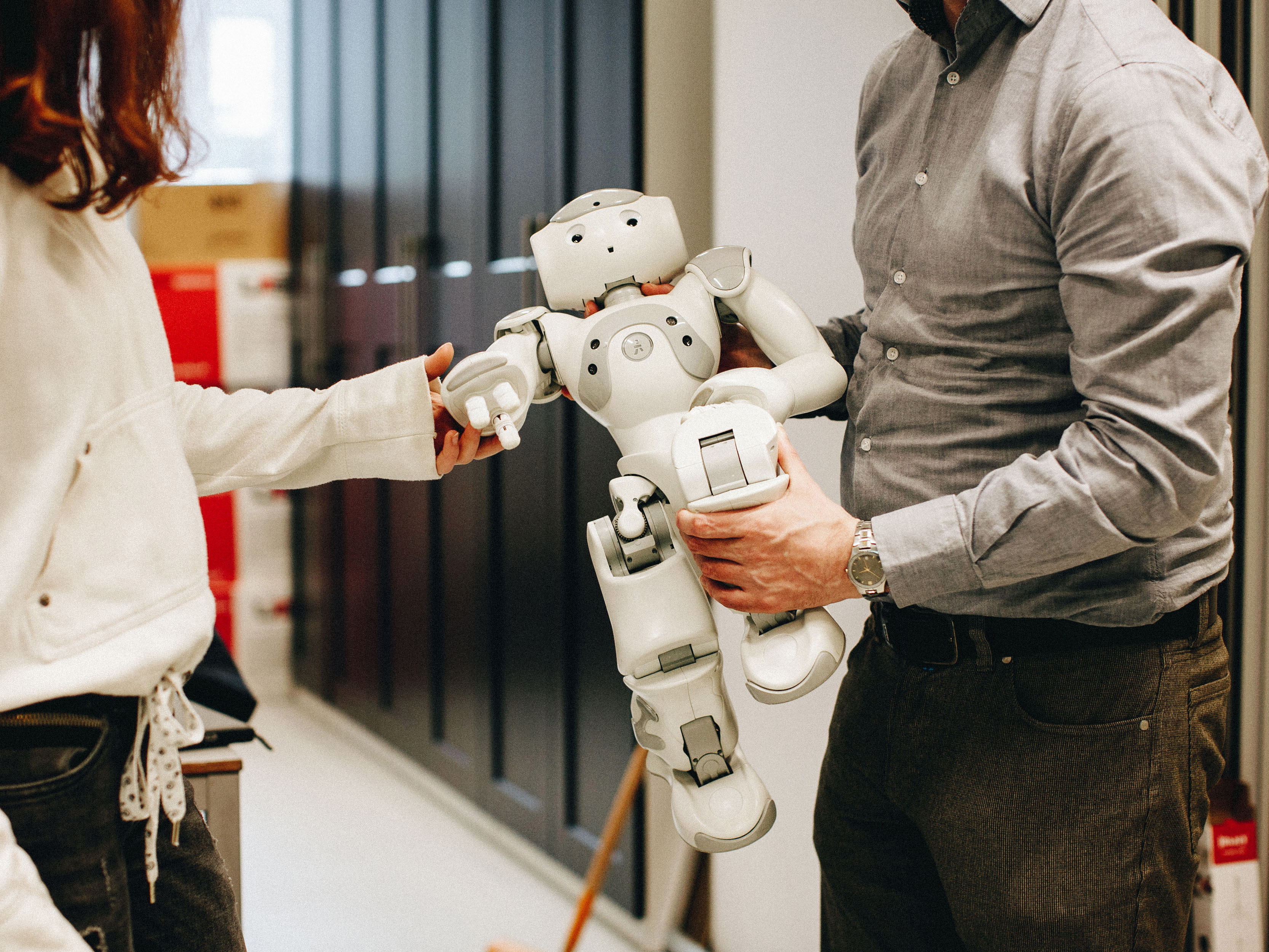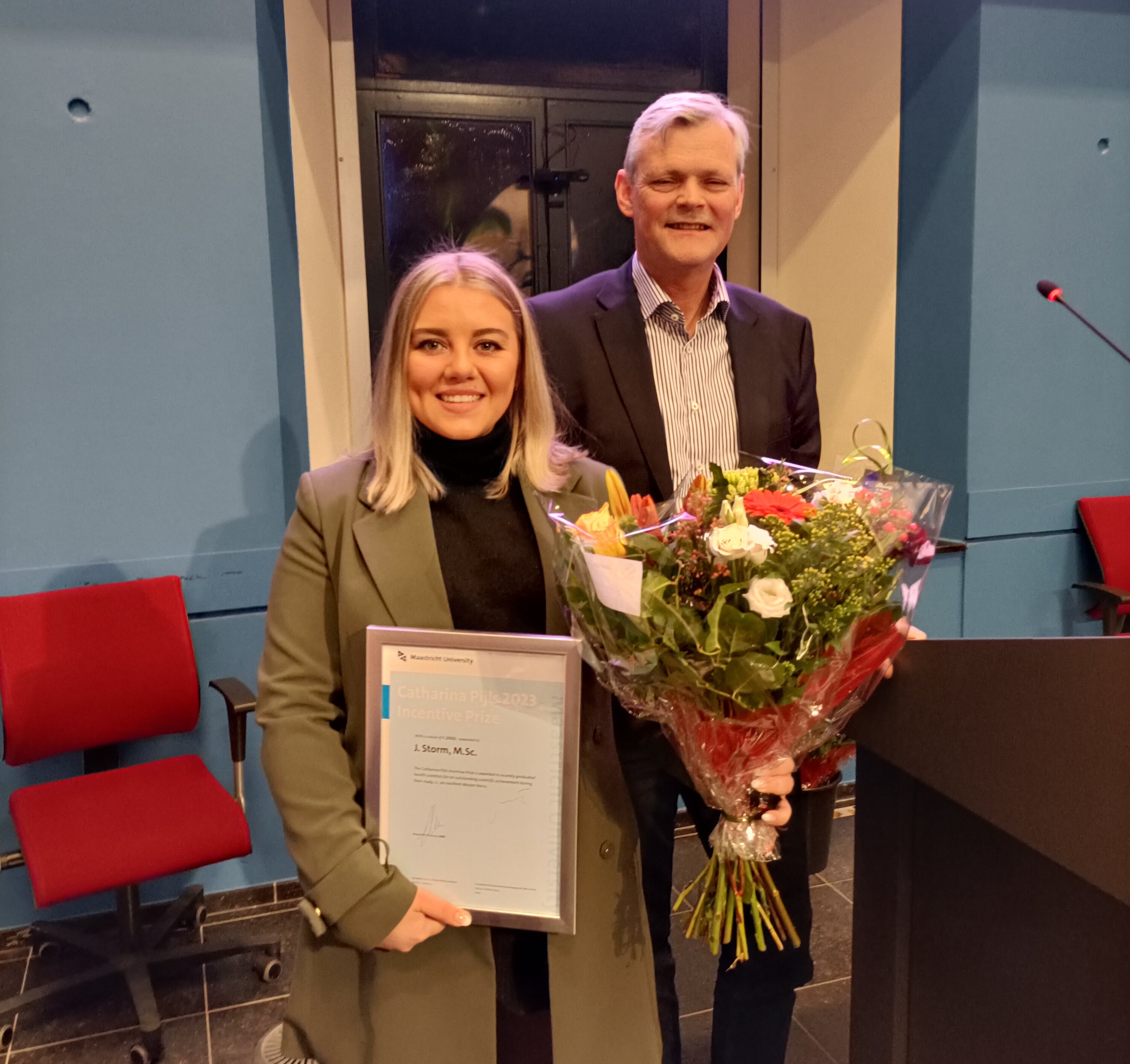The Garden of Eden is in Maastricht
The study association of the master's programme in Sustainability, Science and Policy, ASAP, has kept a community garden for about four years in Maastricht on the Mergelweg. Under the inspiring leadership of Colin Laviolette, around eight students maintain the garden. And successfully, as the first potato, zucchini and tomato shoots are carefully coming out of the ground. He is proud of that. “When we took over the garden from the previous class of students, it was a big jungle. Now, everything is relatively organised again.”
Born in the countryside near Verviers, Colin, as one of four children, helped in the garden. He is not an expert but is very enthusiastic. And his experiments usually turn out well. “I had some potatoes left over, which I cut down the middle and planted. And it worked. That’s so cool to see. And everything we’re doing is eco-friendly.”


Many of the seeds and plants were given to them by family and friends and the community gardeners next to them. “We try to work there at least once or twice a week, weeding, watering the plants, etc. We developed a Google Drive doc which will be given to next year’s students, so there will be more continuity and they’ll have an idea of what’s planted where—because some of it will be blooming when we’re gone in September. We have some space for flowers and some for aromatic herbs. We have some bushes, we have a compost location and we have a toolbox. We don’t have a proper storage cabinet, and some tools have unfortunately disappeared, so we’ll have to take care of that.” If it were up to Colin, this year would come to a close with a dinner for everyone from the master’s programme using food from their own garden.

Organic ‘WWOOFing’ in Patagonia
After completing his bachelor's degree in Arts and Culture in Maastricht in 2015, he decided to travel. Through WWOOF, a worldwide network of organic farmers, where young people can work on a farm in exchange for housing and meals, he ended up in Patagonia for four months. His host was a farmer named Alberto, who together with the elder Don Roque owns about 8 hectares of land. “They’re living in a sustainable way—running water from the river, all self-providing. They make a little money from making raspberry jam and they have some sheep. Everything we ate came from the farm, which was amazing. I helped them out with daily life on the farm from 7.30 in the morning until 7.00 in the evening. In the four months there, I spent 300 euros and half of it was on internet service so I could Skype with my girlfriend at the time.”
Tied to nature
In Patagonia, Colin saw with his own eyes how close these farmers are to nature, something that he rarely finds here. “In South America, they have what they call Mapuche which literally means people of the earth. They pass on the long tradition of farming by respecting nature. Don Roque’s mother was Mapuche. He himself left school at 14 but he knew everything about plants and the way cows interact with each other by observing them. This is really powerful. Gardening for me is going back to where you come from, in the sense that you really develop ties with things that you usually take for granted. I’m growing avocados in my room, for example. And every day I look at them and try to see the differences. It’s so redeeming; life is opening in front of you.”
Rethinking agriculture
He returned to Maastricht to do the master’s programme in Sustainability, Science and Policy. “I’m in love with this master’s programme; it really works for me. It’s giving me a broad perspective on sustainability and I like the people who are in the programme. They come from very different backgrounds. And the teachers really try to bring all 44 students together. You learn about sustainable development from a governmental, juridical and geological perspective and you learn a lot that you can apply to your daily life. For example, we had a course about the Volkswagen scandal when they lied about the engine emissions and we participated in the UN volunteer programme on sustainability. Here, you end up meeting real professionals and you actually contribute to their agenda. It was extremely challenging but very rewarding.”
His thesis will be about the possibilities and challenges of small-scale organic farmers in the region where he was born—how could it be about anything else? “Agriculture has a huge impact on ecology, and agroecology is a way to respond. It’s rethinking our economy; it's rethinking agriculture.”
After completing his thesis, he hopes to realise his own sustainability project, which is to cycle from Belgium to Mongolia. “No cars or planes involved.” And after that? “Get my own piece of land to create my own paradise. To rephrase the Dalai Lama: ‘Men are spending their health to make money and once they are wealthy they use money to get healthy’. Life for me is about being healthy and happy. Gardening has the power to gather people around something good.”

Also read
-
Moving on your own to a new country with a different culture and language and without a support network can be challenging. Master's student Beverlianne Green therefore quickly realised she wanted to get involved with the local community. Through the Personal & Professional Development Portal of...
-
Last year, Maastricht University further strengthened its profile in science and technology by launching a Bachelor in Computer Science. The response exceeded all expectations, with the first cohort of 300 students from all over the world starting the programme in September. “Computers and...
-
The healthcare sector is facing limited resources. Without smart innovation, quality of care is at risk for all patient groups. Jessica Storm, an alumna of the master’s programme Healthcare Policy Innovation and Management, researched the cost-effectiveness of fall prevention for one of the largest...

